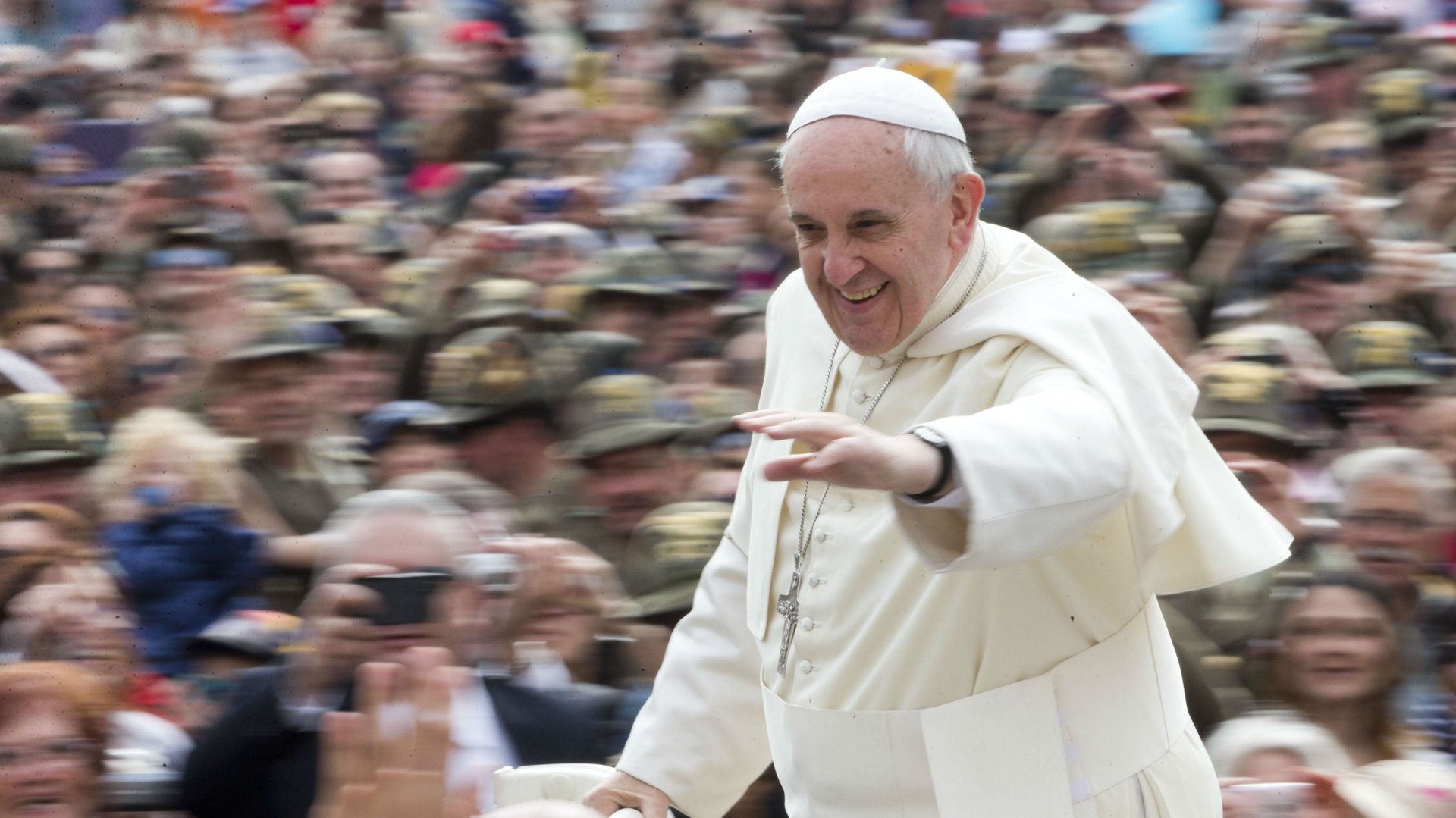The Vatican is in damage-control mode after the Pope sent his blessings to a same-sex family
When Francesca Pardi sent Pope Francis her children’s book, Why do you have two moms? she probably wasn’t expecting a response.


When Francesca Pardi sent Pope Francis her children’s book, Why do you have two moms? she probably wasn’t expecting a response.
In her letter, sent on June 19, Pardi expresses respect for Catholics and says many have treated her well, but also says that representatives of the church have been disrespectful to her same-sex partnership and family, and she asks the Pope to check this behavior (translated from Italian):
Several Catholic organizations have lowered themselves to unworthy behaviors, deliberately deforming reality, the very ones who are meant to demonstrate a superior moral fiber: I would really like for you to stop them.
Pardi also sent the Pope a package of children’s books about untraditional families from her publishing house, Lo Stampatello (link in Italian). Why do you have two moms?, as well as two of Pardi’s other books, have been banned from Venice’s Kindergarten libraries.
But the pontiff did reply, sending a friendly though cautious letter postmarked July 10, via Monsignor Peter Brian Wells.
On her Facebook page, Pardi posted a picture of the envelope addressed to her by the Holy See. She did not post the Pope’s letter itself, but she summarized it (translated here from Italian):
He thanks me for the kind gesture and for the sentiment that motivated it, and hopes for an always more fruitful activity at the service of young generations and sharing authentic human and christian values.
The Pope closes the letter with his “apostle’s blessing” (a special benediction), for Pardi, she said, “together with Ms Maria Silvia Fiengo”—her same-sex partner and the other mother of her four children.
Pardi and others in Italy’s LGBTQ community in Italy took the Pope’s message as a sign of acceptance: In particular, his saying her work is “at the service of young generations” and the fact that he imparted a blessing upon her and her same-sex partner.
(Translated: I only said that the Pope’s message shows capacity of respectful dialogue with those with different way of thinking.)
The Vatican did not deny Pardi’s account of the Pope’s letter—but it made a point to throw cold water on the idea that the leader of the Catholic church was offering encouragement or an accepting message about LGBTQ lifestyles.
Father Ciro Benedettini, the Vatican spokesperson, published a note (link in Italian) asserting that in no way is the letter “meant to endorse behaviors and teachings unfit to the Gospel.” Benedettini also says that the Pope’s blessing was meant for the individual, and was “not in line with the church’s doctrine on gender theory, which has not changed in the slightest.”
Quartz has reached out to both Pardi and the Holy See for comments on the exchange and will update this post with any response.
While the church’s official position is that homosexual acts are a sin, the current Pope has at times hinted at a more tolerant view that have led many to hope for a change in stance—including by famously saying, in 2013, “If someone is gay and he searches for the Lord and has good will, who am I to judge?”
Italy remains a relatively inhospitable place for LGBTQ people. It is one of the few countries in Europe that doesn’t allow any form of same-sex unions, and the Italian government (link in Italian) has gotten an ultimatum from the European court of human rights to work on a law that allowed gay unions.
Many publicly still express hostility towards LGBTQ rights, and among them is the mayor of Venice, Luigi Brugnaro, whose first act in office was banning several children’s books from the city’s Kindergarten libraries, including Pardi’s Little Egg, What’s dad’s secret, and Why do I have two moms?
Several groups, mostly Catholic, have attacked the authors of the books, which media have dismissively called “gay fairytales,” claiming they try to “indoctrinate” kids to prefer gay unions.
But that was never the intention, Pardi said in her letter to the Pope.
“Maria Silvia and I opened the publishing house for the love of our kids,” she wrote. “The book Why do you have two moms? is simply our (their) story.”
“It’s not ideology,” she explained, “but love for a neighbor.”